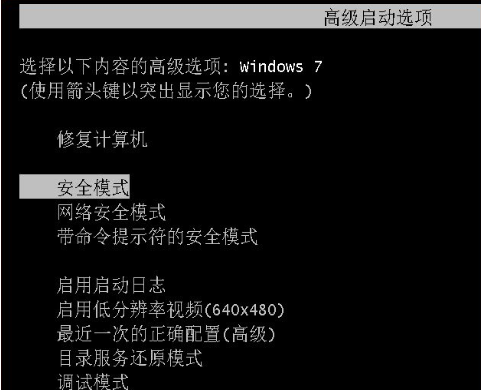 headlines
headlines PHP full-stack development engineer learning roadmap (illustration of the relationship and learning sequence of each programming language)
PHP full-stack development engineer learning roadmap (illustration of the relationship and learning sequence of each programming language)What is full stack? The so-called full stack means having the technical capabilities of [front-end and back-end] at the same time! For beginners, full stack is a proud title. For mature engineers, full stack is a derogatory term in most cases. Why?
Front-end and back-end are each a technology and discipline, so the true attitude towards learning WEB development should be to delve into a technology, which is also what enterprises need. In this era, the title of full stack has gradually been replaced by Scorned by enterprises (except small companies, small companies not only require you to know the front-end but also PHP, and even leave the art to you, they think you are an all-rounder)!
If you want to work as a front-end development engineer, it is recommended not to learn PHP, just master the front-end; if you want to work in PHP website development, then the front-end must be learned, you don’t need to study in depth, as long as Just know how to do simple front-end layout, and focus on PHP programming!
So what is the relationship between learning PHP and the front-end? Where should I start learning? Let me give you a picture first so that you can have a perceptual understanding!

1. The relationship between front-end and back-end
1. Horizontal classification
Front-end: HTML, CSS, JavaScript
Back-end: PHP, MySQL
2. Responsibility classification
HTML: Responsible Web page structure part
CSS: responsible for web page layout and style part
JavaScript: responsible for web page program logic, dynamic rendering and special effects part
PHP: responsible for server-side logic and database operations Part
MySQL: Responsible for data storage part
3. Analogy between learning technology and people
01. First of all, people must have a basic composition (Head, body, arms, hands, legs, feet)
-> Learn HTML
02. Secondly, people must have an orderly arrangement of all components Combination and dressing (combining various parts into a body and putting on clothes)
-> Learn CSS
03. Secondly, people need to have some logical thinking. Support people’s ability to move (eating, sleeping, exercising, etc.)
04. Thirdly, people need to have the ability to use their brains to think about problems (such as Learning, problem solving, ethical behavior, etc.)
-> Learning PHP
05. Finally, people need some reserves of knowledge and information to arm themselves and become a competent person. Able and well-educated people
-> Learn MySQL
##2. PHP full stack development engineer learning sequence
Basic learning sequence: HTML/CSS -> JavaScript -> PHP/MySQLIf you lack self-study ability, it is recommended to sign up for a class: php Chinese website For VIP membership courses, front-end and PHP can be learned separately. The registration address is: You can also choose to live online classes For full-stack learning, the registration address is:1. Learn HTML/CSS in one stage: Structure and style must be learned together to have an intuitive sense.
PS: You must first understand the basic tags of HTML! It is also indispensable to make the first screen of JD.com and Taobao after learning, I can’t do it! Pick your head out and rub it out for me. This is the only way to go. Feel sorry! There’s pressure on you!2. Learn JavaScript alone: (The front-end that can’t be hurt appears at this moment)
JavaScript is a difficult language! ! No matter how mature and awesome the front-end engineer is, he will say the same thing. The reason is because it is very flexible. Everything seems to be correct no matter how you write it, but you just don’t know how to write it. Do you feel the same way? He is divided into three parts: 01, Anyone who knows the art knows that ECMAScript is the most difficult for beginners Part, what scope, what prototype prototype chain, what closures, what object arrays and a lot of things. If you feel that JavaScript is too easy when you are learning it, I'm sorry, I can only suggest that you learn it again. Learning ECMAScript takes the longest time. 02, DOM is not simple, because... there is also a lot of content, such as traversing the tree, nodes, elements, etc. A lot of compatibility packages, what bubbling capture event proxy, what mouse and keyboard behavior, what dragging, what mouse behavior prediction, what double-click, a lot of packages, what DOM event processing function logic, a lot of cases are waiting for you Do. 03、BOMBOM is relatively simple, and there is not much to master. Let me emphasize that it is not useless, but the compatibility is not good. After all, it is an orphan and there is no standard, so you can only use it, but you can't ignore it. Learning single page applications.
3. Learn PHP and MySQL together
After you understand the basic syntax of PHP, you may want to do something.
Then you have to mess with the data. Without data, there will be no project, you know.
3. Summary
If you specialize in the field, if you spend time studying front-end technology, your back-end capabilities will definitely be inferior, and vice versa. Of course. Don't say that you have to spend a lot of energy to learn. A front-end or back-end alone is enough to learn it (I don't dare to talk about time here).
In order to complete a complete project, beginners will quickly learn all the technical points they need on the front and back ends, but both the front and back ends are the same technology.
First of all, the maturity of any developer's development technology depends on a solid theoretical foundation and business experience. Therefore, it is often difficult for self-taught developers to be qualified for enterprise development tasks. Any enterprise needs to be easy to read and maintain. , easy to expand, and scientific project structure and code. However, learners who often lack theoretical foundation and business guidance have difficulty in developing projects to meet the above requirements. This also leads to the situation that self-taught beginners are always in a dilemma. In the state of "full stack self-pleasure". But everyone knows that the appreciation of the whole stack has misled me and turned me into a non-professional and non-professional code producer.
Secondly, it is difficult for learners who lack a solid theoretical foundation to understand more advanced technical points, such as currying, partial functions in functional programming, prototypes, closures, Holy Grail patterns in ECMAScript, etc. etc., which hinders learners from further improving their development abilities.
A mature engineer would never dare to say that he is a full-stack engineer, because he knows in his heart that my technical category is front-end, and I am professional in front-end. Even if I do know how to write PHP and Java, I will not I dare not say that I am proficient or that I can take on back-end work. This is the attitude of an engineer. There is a so-called specialization in the industry.
 如何通过编写代码来学习 PHP8 中的文件操作技巧Sep 12, 2023 pm 04:25 PM
如何通过编写代码来学习 PHP8 中的文件操作技巧Sep 12, 2023 pm 04:25 PM如何通过编写代码来学习PHP8中的文件操作技巧PHP是一种广泛应用于Web开发的脚本语言,能够方便地对文件进行操作,如读写文件、创建目录等。掌握PHP的文件操作技巧对于开发人员来说是非常重要的。本文将介绍如何通过编写代码来学习PHP8中的文件操作技巧。第一步:搭建PHP开发环境在学习PHP的文件操作技巧之前,我们首先需要搭建一个P
 从零开始学Spring CloudJun 22, 2023 am 08:11 AM
从零开始学Spring CloudJun 22, 2023 am 08:11 AM作为一名Java开发者,学习和使用Spring框架已经是一项必不可少的技能。而随着云计算和微服务的盛行,学习和使用SpringCloud成为了另一个必须要掌握的技能。SpringCloud是一个基于SpringBoot的用于快速构建分布式系统的开发工具集。它为开发者提供了一系列的组件,包括服务注册与发现、配置中心、负载均衡和断路器等,使得开发者在构建微
 从零开始学习Django框架:实用教程和示例Sep 28, 2023 am 08:42 AM
从零开始学习Django框架:实用教程和示例Sep 28, 2023 am 08:42 AM从零开始学习Django框架:实用教程和示例Django是一种流行的PythonWeb应用程序框架,它简化了网站的开发过程。它提供了一套强大的工具和库,帮助开发者构建高效、可扩展和安全的Web应用程序。对于初学者来说,学习Django可能会有些困难,但是通过一些实用的教程和示例,你可以快速上手并了解这个框架的核心概念和用法。本文将带你逐步学习Django框
 轻松学会win7怎么还原系统Jul 09, 2023 pm 07:25 PM
轻松学会win7怎么还原系统Jul 09, 2023 pm 07:25 PMwin7系统自带有备份还原系统的功能,如果之前有给win7系统备份的话,当电脑出现系统故障的时候,我们可以尝试通过win7还原系统修复。那么win7怎么还原系统呢?下面小编就教下大家如何还原win7系统。具体的步骤如下:1、开机在进入Windows系统启动画面之前按下F8键,然后出现系统启动菜单,选择安全模式登陆即可进入。2、进入安全模式之后,点击“开始”→“所有程序”→“附件”→“系统工具”→“系统还原”。3、最后只要选择最近手动设置过的还原点以及其他自动的还原点都可以,但是最好下一步之前点击
 学习PHP中的PHPUNIT框架Jun 22, 2023 am 09:48 AM
学习PHP中的PHPUNIT框架Jun 22, 2023 am 09:48 AM随着Web应用程序的需求越来越高,PHP技术在开发领域中变得越来越重要。在PHP开发方面,测试是一个必要的步骤,它可以帮助开发者确保他们创建的代码在各种情况下都可靠和实用。在PHP中,一个流行的测试框架是PHPUnit。PHPUnit是一个基于Junit的测试框架,其目的是创建高质量、可维护和可重复的代码。下面是一些学习使用PHPUnit框架的基础知识和步骤
 分割后门训练的后门防御方法:DBDApr 25, 2023 pm 11:16 PM
分割后门训练的后门防御方法:DBDApr 25, 2023 pm 11:16 PM香港中文大学(深圳)吴保元教授课题组和浙江大学秦湛教授课题组联合发表了一篇后门防御领域的文章,已顺利被ICLR2022接收。近年来,后门问题受到人们的广泛关注。随着后门攻击的不断提出,提出针对一般化后门攻击的防御方法变得愈加困难。该论文提出了一个基于分割后门训练过程的后门防御方法。本文揭示了后门攻击就是一个将后门投影到特征空间的端到端监督训练方法。在此基础上,本文分割训练过程来避免后门攻击。该方法与其他后门防御方法进行了对比实验,证明了该方法的有效性。收录会议:ICLR2022文章链接:http
 我能学习Selenium而不了解Java吗?Sep 11, 2023 pm 07:09 PM
我能学习Selenium而不了解Java吗?Sep 11, 2023 pm 07:09 PM这个问题涉及到许多实际上并不了解核心技术并希望在SeleniumAutomation领域发展职业生涯的专业人士。编码这个术语让非程序员有点害怕,甚至不敢从自动化之类的东西开始。人们认为非程序员无法在自动化方面表现出色,但这只是在头脑中。许多值得和有能力的手动测试人员回避Selenium,只是认为它需要一些特殊技能。Selenium脚本是用多种语言设计的,例如Python、Ruby、C#、JavaScript和Java就是其中之一他们当中就有这样的人。了解了Java的受欢迎程度和未来前景,现在更倾
 轻松学会win7如何升级win10系统Jul 15, 2023 am 09:37 AM
轻松学会win7如何升级win10系统Jul 15, 2023 am 09:37 AM随着win10系统的成熟,微软停止win7的更新和支持,越来越多人选择win10系统使用,打算将自己的win7升级win10系统。不过很多小伙伴不知道win7如何升级win10系统,找不到升级的按键。下面小编教大家一个简单的win7升级win10系统的方法。我们可以借助工具轻松实现win7升级安装win10的方法,具体的操作步骤如下:1、先在电脑上下载安装小鱼一键重装系统工具并打开,关闭电脑的杀毒软件,备份c盘重要资料。然后选择需要安装的win10系统点击安装此系统。2、这个界面选择想要安装的软

Hot AI Tools

Undresser.AI Undress
AI-powered app for creating realistic nude photos

AI Clothes Remover
Online AI tool for removing clothes from photos.

Undress AI Tool
Undress images for free

Clothoff.io
AI clothes remover

AI Hentai Generator
Generate AI Hentai for free.

Hot Article

Hot Tools

EditPlus Chinese cracked version
Small size, syntax highlighting, does not support code prompt function

SublimeText3 English version
Recommended: Win version, supports code prompts!

MinGW - Minimalist GNU for Windows
This project is in the process of being migrated to osdn.net/projects/mingw, you can continue to follow us there. MinGW: A native Windows port of the GNU Compiler Collection (GCC), freely distributable import libraries and header files for building native Windows applications; includes extensions to the MSVC runtime to support C99 functionality. All MinGW software can run on 64-bit Windows platforms.

SublimeText3 Linux new version
SublimeText3 Linux latest version

SAP NetWeaver Server Adapter for Eclipse
Integrate Eclipse with SAP NetWeaver application server.





